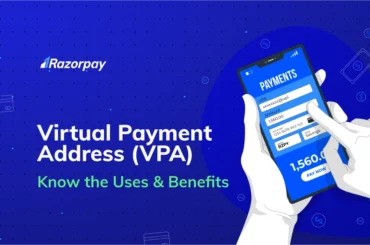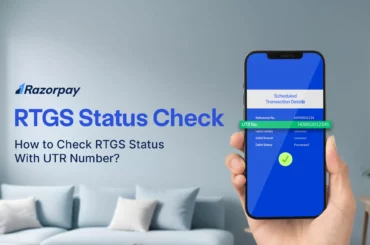Table of Contents
What is an Ex Gratia Payment?
An ex gratia payment is a voluntary payment made by an organization, government, or individual as a goodwill gesture, without any legal obligation or admission of liability. The term “ex gratia” comes from Latin, meaning “out of grace.” These payments are often provided to individuals or groups who have suffered a loss, inconvenience, or harm, even though the payer is not legally required to compensate them.
Ex gratia payments are common in situations like compensation for accidents, natural disasters, or workplace injuries, where the payer seeks to offer support or relief without acknowledging fault or responsibility.
Examples of Ex Gratia Payments
Here are some real-life examples that explain what ex gratia payment is.
Example 1
The Prime Minister of India announces aid to the deceased and critically injured through the Prime Minister’s National Relief Fund (PMNRF) following accidents and natural disasters, such as cyclones, earthquakes, and floods. This aid helps families of those who have suffered due to the calamity.
Example 2
Mr. Arunbhai Naik was terminated by his employer, Gujarat State Fertilizer Company Ltd. When Mr. Naik filed a writ petition to the High Court against his termination, the employer made an ex gratia payment to him as settlement.
Example 3
In August 2023, the Chief Minister of Maharashtra announced an ex gratia aid of Rs 5 lakh for the kin of those deceased in the bus accident in Buldhana on the Samruddhi Mahamarg Expressway. The aid was given via the Chief Minister’s Relief Fund.
Conditions Where Ex Gratia Payments Are Allowed
Ex gratia payments are discretionary and typically occur in situations where there is no legal obligation to provide compensation, but an organization or individual chooses to do so as a gesture of goodwill. Common scenarios include:
Employee-Related Issues
- Layoffs or retrenchments
- Employee injuries or deaths
- Early retirement packages
- Employees who have to relocate for work
Customer Disputes
- Product defects or failures
- Service disruptions
- Customer complaints resolution
Disasters and Emergencies
- Natural calamities
- Accidents or unexpected incidents
Corporate Social Responsibility
- Charitable donations
- Community development initiatives
It’s important to note that the decision to make an ex gratia payment is based on the payer’s discretion, organizational policies, legal considerations, and the specific circumstances of each case.
How Ex Gratia Payments Work?
Ex gratia payments are typically made as a one-time, voluntary compensation without admitting liability. The process varies depending on the circumstances, but generally involves the following steps:
Initiation
The decision to make an ex gratia payment is usually made at a higher management level within an organization.
Calculation
The amount of the payment is determined based on various factors, such as the nature of the loss or damage, financial implications, and organizational policies.
Communication
The recipient is informed about the ex gratia payment and its terms and conditions.
Disbursement
The payment is made through the preferred payment method, such as bank transfer (IMPS, RTGS or NEFT) or cheque.
It’s important to note that while ex gratia payments are voluntary, they are often subject to tax implications, depending on the specific circumstances and jurisdiction.
Features of Ex Gratia Payments
1. Voluntary Payments
Ex gratia payments are voluntary and made as a gesture of goodwill. The term ‘ex gratia’ itself is a Latin word that means ‘by favor’. Owing to its voluntary nature, it is also called a ‘golden handshake.’
2. No Monetary Limit
As ex gratia payments are not mandatory, there is no particular method of calculating the amount of an ex gratia payment. There is no upper or lower limit to ex gratia payments. The amount depends on the losses that are to be compensated and the payer’s ability to pay.
3. Goodwill Gesture
Ex gratia payments are made as a goodwill gesture. These payments can help businesses maintain good relationships with customers or employees. They can have a positive impact on the public image of a company and boost employee morale.
4. Taxation
In India, such voluntary payments are fully taxable in the hands of the recipient. However, the ex gratia payments received from employers and well-wishers during the COVID-19 pandemic are exempt from taxes.
Things to Keep in Mind in Case of Ex Gratia Payment
- Ex gratia payments are different from bonus payments made under the Payment of Bonus Act, 1965, which is a statutory obligation.
- The ex gratia amount paid is taxable in the hands of the recipients at regular tax rates (except for a special exemption given for payments received during the COVID-19 pandemic.)
- A gratuity payment is not an ex gratia payment as gratuity is a legal obligation governed by the Payment of Gratuity Act, 1972.
Tax Implications of Ex Gratia Payments
The taxability of ex gratia payments can vary depending on several factors, including the nature of the payment, the relationship between the payer and recipient, and specific tax laws of the jurisdiction.
General Tax Treatment
- India: Ex gratia payments are generally not taxable unless they are made in lieu of salary or wages. However, the specific tax treatment can vary depending on the circumstances and the relevant tax laws.
- Other Countries: Tax implications can differ significantly between countries. It’s essential to consult with a tax professional for accurate advice based on specific circumstances.
Factors Affecting Taxability
- Nature of the payment: Ex gratia payments made as compensation for loss or injury might have different tax implications than those made as a gesture of goodwill.
- Relationship between parties: Payments made to employees or former employees might be subject to different tax rules than those made to customers or other third parties.
- Jurisdiction: Tax laws vary by country and region, impacting the tax treatment of ex gratia payments.
It’s crucial to seek professional tax advice to determine the specific tax implications of an ex gratia payment in a particular situation.
Key Takeaways
Understanding the scope and meaning of ex gratia payments is crucial for individuals and businesses alike. By adhering to the appropriate guidelines, both recipients and providers can navigate this process effectively and track payments seamlessly.
FAQs on Ex Gratia Payments
1. Is ex gratia part of the salary?
No, ex gratia payments are voluntary payments and do not form part of the salary.
2. How is ex gratia calculated in salary?
There is no fixed calculation method for ex gratia payments. The amount provided differs from one company/situation to another.
3. Is ex gratia taxable in salary?
Yes, ex gratia payments made by employers are taxable under the Income Tax Act 1961.
4. What is ex gratia in payslips in India?
Ex gratia in payslip is a voluntary payment made by the employer to the employee without any legal obligation.
5. What is the difference between gratuity and ex gratia?
Gratuity payments are legally mandated and governed by the Payment of Gratuity Act 1972. However, ex gratia payments are completely voluntary and not a statutory requirement.



